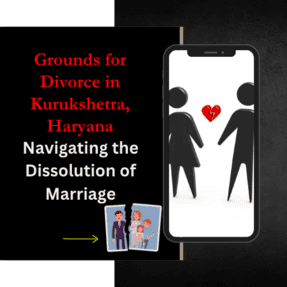Divorce can be a challenging and emotionally fraught process for both parties involved. However, understanding legal rights and protections is crucial, especially for women who historically faced disadvantages in divorce proceedings. In this article, we delve into the legal rights women have during divorce and how they can advocate for a fair settlement.
Legal Rights for Women in Divorce Proceedings: A Comprehensive Guide
- Equal Distribution of Marital Assets:
One of the key legal rights women have in divorce proceedings is the right to an equal distribution of marital assets. This means that the court will aim to divide property and assets acquired during the marriage fairly. It is important for women to gather documentation of joint assets and financial contributions to ensure a fair split. - Alimony and Spousal Support:
Women may be entitled to spousal support or alimony during and after divorce proceedings. This is especially relevant if there is a significant disparity in income or if one spouse has been financially dependent on the other. The court considers factors such as the length of the marriage, the standard of living during the marriage, and each spouse’s earning potential when determining the amount and duration of alimony. - Child Custody and Visitation Rights:
Child custody proceedings can often be complex and emotionally challenging. Women, like men, have the legal right to seek custody of their children and establish visitation schedules. The court’s primary focus is the best interests of the child, considering factors such as the parent’s ability to provide a stable environment, their involvement in the child’s life, and their overall parenting skills. - Child Support:
In divorce proceedings involving children, both parents have a legal obligation to support their children financially. Women have the right to seek child support from the non-custodial parent to ensure the child’s well-being. The court will assess each parent’s income, expenses, and other relevant factors to determine the appropriate amount of child support. - Legal Representation:
Women, like men, have the right to legal representation throughout the divorce process. Hiring an experienced divorce attorney who specializes in family law is crucial for advocating for their rights. A knowledgeable attorney can guide women through the legal complexities, ensure their interests are protected, and help negotiate a fair settlement. - Protection Against Domestic Violence:
If a woman has experienced domestic violence or feels at risk during the divorce process, she can seek legal protection. Temporary restraining orders and protection orders are available to provide safety and prevent further harm. It is important to document incidents of violence and consult with a family law attorney to explore available legal options.
Conclusion:
Understanding and asserting legal rights is essential for women navigating divorce proceedings. From asset division and alimony to child custody and support, women have the legal right to protect their interests and secure a fair settlement. It is advisable to consult with a qualified family law attorney who can provide guidance and support throughout the process. By advocating for their rights, women can strive for a smoother transition into their post-divorce life.
FAQ :- Legal Rights for Women in Divorce Proceedings
- Q: What are the legal rights for women during divorce proceedings?
A: Women have rights to equal distribution of marital assets, spousal support, child custody, child support, legal representation, and protection against domestic violence. - Q: Do women have an advantage in divorce proceedings?
A: No, both parties have equal rights in divorce proceedings. However, certain historical imbalances are being addressed to ensure a fair and equitable process. - Q: What is considered marital property that women are entitled to?
A: Marital property includes assets acquired during the marriage, such as homes, vehicles, bank accounts, investments, and other shared possessions. - Q: Can a woman seek alimony or spousal support during divorce?
A: Yes, if there is a significant income disparity or if one spouse is financially dependent on the other, a woman can seek alimony or spousal support. - Q: How is child custody determined for women in divorce?
A: Child custody is determined based on the best interests of the child, focusing on factors like parental involvement, stability, and parenting ability. - Q: Can women pursue child support from the non-custodial parent?
A: Yes, women have the right to seek child support to ensure the financial well-being of their children. - Q: Can women represent themselves in divorce proceedings?
A: While it is possible for women to represent themselves, it is advisable to seek a qualified family law attorney to protect their rights effectively. - Q: Are women protected against domestic violence during divorce proceedings?
A: Yes, women can seek temporary restraining orders or protection orders if they have experienced domestic violence or the risk of harm. - Q: Can women request a change in custody agreement after divorce?
A: Yes, women can request a modification of the custody agreement if there are substantial changes in circumstances that necessitate a revision. - Q: What happens to the family home during divorce proceedings for women?
A: The family home may be subject to division or buyout based on factors such as financial considerations, custody arrangements, and individual needs. - Q: Can women request reimbursement for attorney’s fees during divorce?
A: Yes, women may be entitled to seek reimbursement for attorney’s fees, especially if there is a significant disparity in income between the parties. - Q: How long does the divorce process typically take for women?
A: The duration varies depending on the complexity of the case, mutual agreement on terms, court backlog, and other factors. It can range from a few months to years. - Q: What if a woman suspects hidden assets during divorce proceedings?
A: If there are suspicions of hidden assets, a woman can enlist the assistance of professionals like forensic accountants to uncover any wrongdoing. - Q: Can women pursue a collaborative divorce process?
A: Yes, collaborative divorce allows women and their spouse to work together with their attorneys to reach mutually agreeable settlements outside of court. - Q: Can women request a name change back to their maiden name after divorce?
A: Yes, women can usually request a name change back to their maiden name as part of the divorce decree. You can read :- How to change name after divorce - Q: Can women include college tuition expenses in child support calculations?
A: College tuition expenses may be considered an additional cost and can be negotiated as part of the child support agreement or post-divorce modifications. - Q: What happens to jointly-owned businesses during divorce proceedings?
A: Jointly-owned businesses may undergo valuation and may be subject to division or buyout, depending on the specifics of each case. - Q: Can women request a restriction on their former spouse’s visitation rights?
A: Restricting visitation rights typically requires evidence of endangerment or harm to the child. If valid concerns exist, legal action can be taken. - Q: Can women contest prenuptial agreements during divorce?
A: Women can contest prenuptial agreements if there are valid grounds such as coercion, fraud, or unfair provisions. - Q: Can women file for divorce without citing specific reasons?
A: Many jurisdictions offer “no-fault” divorces, allowing women to file without alleging specific reasons, focusing instead on the irretrievable breakdown of the marriage. - Q: What if a woman’s spouse refuses to comply with court orders during divorce?
A: If a spouse refuses to comply with court orders, the woman can seek legal remedies such as filing a motion for contempt or enforcement. - Q: Can women pursue relocation with their children after divorce?
A: Relocation laws vary, and generally, women must seek court approval if moving a significant distance with their children, considering the impact on visitation and custody arrangements. - Q: Can women request a temporary financial support order during divorce proceedings?
A: Yes, women can request temporary financial support, known as pendente lite support, to cover their living expenses while the divorce is in progress. - Q: Can women request the appointment of a guardian ad litem for their children?
A: Women can request the appointment of a guardian ad litem to represent the best interests of the child during divorce proceedings. - Q: Can women fight against false allegations made by their spouse during divorce?
A: Women can present evidence to refute false allegations made by their spouse, demonstrating their innocence and protecting their rights. - Q: Can women file for divorce if their spouse is missing or unresponsive?
A: Women can file for divorce, even if their spouse is missing or unresponsive. Depending on jurisdiction, alternative methods of service may be required. - Q: Can women request a restraining order against their spouse during divorce proceedings?
A: If there is a genuine threat of harm or domestic violence, women can request a restraining order to protect their safety during the divorce process. - Q: Can women request a change in visitation rights if their child expresses discomfort?
A: Women can petition for a modification of visitation rights if their child expresses discomfort or if there are valid reasons to believe visitation could be harmful. - Q: Can women request supervision during their spouse’s visitation with the child?
A: If there are concerns about the child’s safety, women can request supervised visitation, where a neutral third-party supervises the interactions between the child and the non-custodial parent. - Q: Can women appeal a court’s decision if they are dissatisfied with the divorce outcome?
A: Women can appeal a court’s decision if legal errors or procedural mistakes occurred during the divorce proceedings that impacted the final outcome.
















